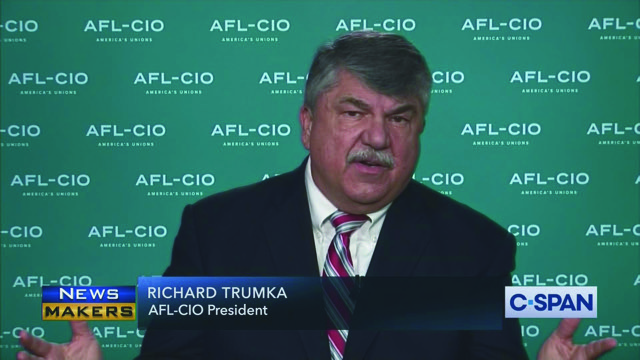In what has become par for the course in the current National Labor Relations Board, the Board closed down its operations on March 19, blaming the coronavirus outbreak, cancelling NLRB union-recognition elections. Public outcry ensued, and the Board resumed elections on April 6.
The NLRB said that it took its “extraordinary action to ensure the safety of Agency employees and members of the public involved in elections.”
The AFL-CIO led the public outcry, declaring the Board’s move as a “muzzling of workers,” and demanding that the NLRB immediately end this suspension and conduct all-mail ballot elections instead.
They noted that the NLRB was suspending the ability to form unions at a critical time when more and more workers are seeking union protections in their workplaces.
During this same time, the NLRB announced new rules eliminating the blocking charge policy — where union elections can be delayed in the face of unlawful conduct by employers — and making it more difficult for employers to voluntarily recognize unions. Under the Board’s final rule on “blocking charges,” elections can no longer be “blocked” by pending unfair labor practice (ULP) charges. Instead, elections will go forward and votes will either be counted or impounded, depending on the nature of the charge.
AFL-CIO President Richard Trumka was livid.
“In two-weeks-time, in the middle of a pandemic, President Trump’s NLRB suspended representation elections and then made it harder for employers to voluntarily recognize unions,” he said. “In other words, the Board is effectively sealing off any viable path to unionization at a time when workers need a voice on the job more than ever. Donald Trump’s caustic hostility to collective bargaining has manifested itself in the most anti-worker NLRB in America’s history. The labor movement will fight these actions with everything we have.”
“(This) decision to resume elections is a step in the right direction, but we cannot allow ourselves to grow weary,” Trumka said after the reopening announcement.





